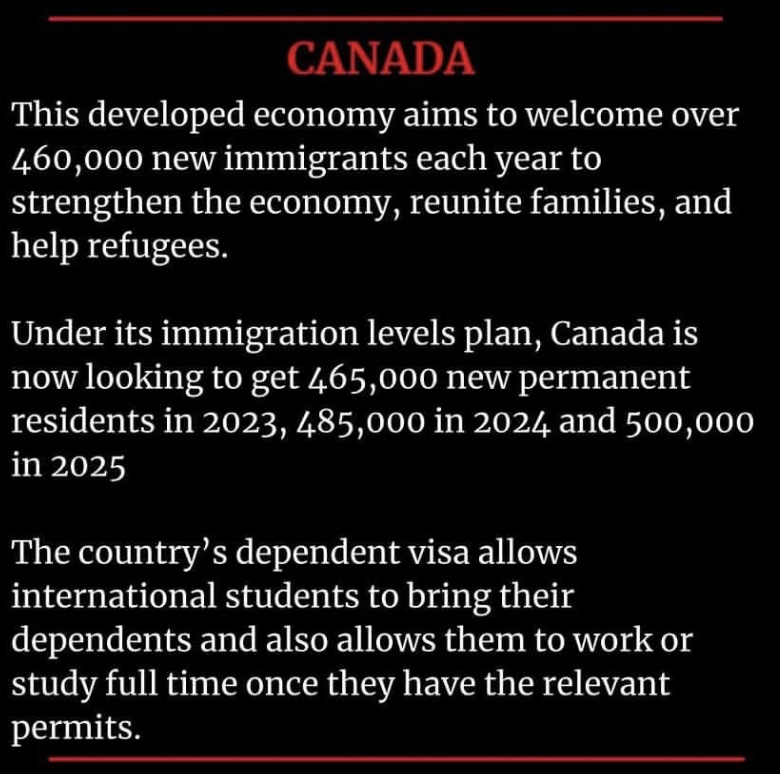
The UK immigration policies change as frequently as you change your underwear.
Foreign students are to be banned from bringing family members to Britain under government plans to reduce migration, the home secretary has announced.
Suella Braverman said that the government wanted to tighten the system so the government could meet its pledge to cut net migration. Official figures published on Thursday are expected to show that net migration rose to another record high of 700,000 in the year to December 2022.
Under the plans all foreign students except for those on PhD courses and a small number of other limited exemptions, such as research-led masters courses, would be barred from bringing dependants with them to the UK.
Braverman also announced new restrictions that would ban international students from switching to work visas before they have finished their course.
The move is a response to evidence that some international students are abusing Britain’s study visa schemes by securing a place on a nine-month masters’ programme or an MBA course as a “backdoor” to obtaining work in the UK and bringing their family with them.
The policy would apply to future overseas students and would not affect those already enrolled on courses in the UK.
Undergraduate foreign students are already barred from bringing dependants with them but the vast majority of international students in the UK are on full-time postgraduate courses. Most come from outside the EU.
Suella Braverman, the home secretary, said: “The UK is a top destination for the brightest students to learn at some of the world’s best universities. But we have seen an unprecedented rise in the number of student dependants being brought into the country with visas.
“It is time for us to tighten up this route to ensure we can cut migration numbers and meet the government’s pledge to the British people to cut net migration. This is the fair thing to do to allow us to better protect our public services, while supporting the economy by allowing the students who contribute the most to keep coming here.”
Banning foreign students from bringing dependants to the UK would represent only a fraction of those coming to the UK but ministers believe it will help them argue that numbers will start falling once “abnormal” factors behind the record migration levels, such as the Ukraine refugee crisis and Hong Kong visa scheme, start to fade.
However, Braverman wanted the crackdown to go further, including restricting the time students can stay on in the UK after they finish their course from the current 24 months to just six months. The plan was killed off by Gillian Keegan, the education secretary, who warned that it would harm the UK’s attractiveness to overseas students, who contribute an estimated £30 billion to the economy annually.
Limiting the immigration crackdown to dependants of foreign students is not expected to cause controversy. Sir Keir Starmer said Labour would back the proposals. The Labour leader said he wants to cut immigration, but he refused to set a target and promised not to make it harder for businesses to bring in foreign staff while the economy is struggling.
Modelling conducted by the Home Office is understood to have forecast that a significant factor driving the UK’s increasing immigration figures is growing numbers of family members accompanying overseas students.
The UK issued 485,758 study visas to students last year, who brought an additional 135,788 dependants. It meant that 22 per cent of all study-related visas issued last year were to dependants. This compares with 16,047 dependants in 2019, or 6 per cent of the total.
This trend has continued rising in 2023, according to Home Office modelling, but no figures beyond 2022 have been published.
Nigerians brought the largest number of dependants, with 59,053 Nigerian students bringing 60,923 family members. Next was India, with 139,539 students bringing 38,990 dependants, followed by students from Pakistan, Bangladesh and Sri Lanka.
A government source said: “The issue here is dependants, it’s the problem we’ve got to solve. Something’s gone wrong somewhere, that’s everyone’s concern.”
There are concerns in the Home Office that some Indians and Nigerians are using master’s programmes as a “backdoor” into Britain because they can pay for a nine-month masters’ course, show the necessary maintenance funds and then stay for up to three years by switching on to the graduate visa route after finishing their course. The graduate route allows individuals and their dependants to stay in the UK for up to two years without needing to get a job.
Current rules for bringing dependants to the UK dictate that the applicant is studying a full-time, postgraduate course that lasts nine months or longer. The dependant can be their partner or child under the age of 18 and the applicant must prove they have at least £680 per month to support each of their dependants.
Source The Times








